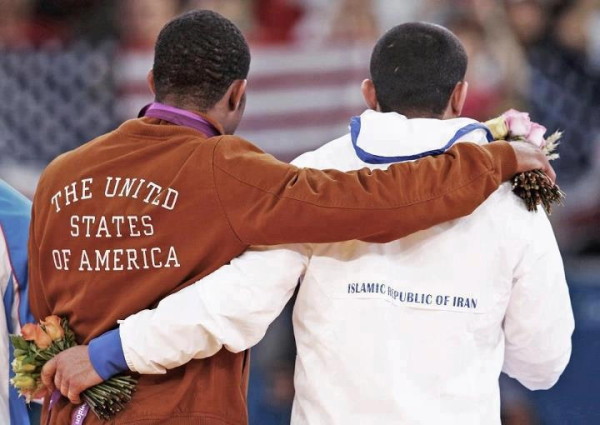There could not be a clearer example of the difference between public diplomacy and cultural relations than that shown in the USC’s latest PDiN Monitor which focusses on British public diplomacy and the London Olympic Games.
The first three articles fall into those who understand public diplomacy as PR and propaganda. The UK’s Consul General in Los Angeles shows a diplomat’s role: delivering messages linked to the GREAT Britain marketing campaign. (I’ve heard of other countries where this cringe-worthy tagline was not used or downplayed). That tourism was markedly down during the Games fortnight was noticeable as Londoners became used to an Oxford Street bereft of shoppers, being able to move around the city even more easily than a normal August. It was a great time to be in London!
“If the University of Southern California were its own country, its alumni alone would have ranked sixth among countries in gold medals (ahead of Germany, France, and Italy) and 11th in overall medal count”, writes Barry Sanders, Chairman of the Southern California Olympic Committee. He goes on to demonstrate the considerable impact California has on the US and other teams.
The most incredible article comes from Saudi Arabia featuring its women competitors. Noting the gradual approach to change in Saudi Arabia we learn:
“A key element has been that the whole process of ensuring the valuable, and essential, participation of women has been managed carefully within the framework of long-standing cultural traditions. The inclusion of our two women athletes in the Olympic Games – and the development of associated infrastructure for women athletes – follows exactly this same well-tried process.”
I’ll return for the fourth article later but first, what do these three contributions tell us? That PR is alive and well and does not need expensive spin doctors to provide it. Rather than a survey of the international impact of the London Olympics the three articles are an official line dream come true. “Give us your press release and we’ll print it”. So the California Olympic Committee responds saying California invented the Olympics (almost).
As an aside, I hope that they used every single one of their tickets (if they had any as part of the USA’s National Olympic Committee allocation) and were not part of the “empty official seats” fiasco of the first week. National Olympic Committees lost respect once it was discovered their officials were not taking up their entitlements notwithstanding the massive demand for tickets. Even the IOC recognised this must change for Rio2016. California undoubtedly had a good Games, far better than Atlanta96. Interviews throughout the whole Games were marked with comments, from IOC boss Rogge downwards, with “we must not return to Atlanta”. 1996 was not deemed an Olympic success but that was not in California.
The Saudi contribution is a masterpiece in avoidance. No mention that Saudi Arabia was threatened with exclusion for not including women in its team – required under the IOC Charter – as international and IOC pressure built up. Sarah Attar, the 800m athlete is a dual US-Saudi national: born, high-schooled and now at university… in California. Her university advertises itself as a Christian University (Pepperdine). Hardly a tribute to Saudi’s domestic support for women athletes. Ms Attar won the hearts of spectators as she was clearly not up to current Olympic standard but finished her heat. Saudi lost any hope of a progressive, however gradual, message when its two women team members walked behind the men at the opening ceremony – uniquely amongst Muslim majority countries. There was a powerful BBC TV interview with two Kuwaiti women Olympians criticising the Saudi policy and holding little hope for domestic development without external pressure.
There did not seem to be any women in the Saudi team at the Paralympics opening ceremony.
The fourth article captured the cultural relations, the person to person, impact of the Games. Many countries opened National Houses in London. Many were closed to the public and used by the team, officials, “Very Important Persons” and trade promotions. Some were public and the two writers capture the PR variations between Russia, France, Brazil, the shared Africa House and the Netherlands: from outright (Russia) to laid back (Netherlands). What they missed is that many of the Houses from EU countries used their Houses to sell surplus official tickets. This certainly improved the image of those countries.
It seems to me that when looking at the impact of major sporting events like the Olympics, the Paralympics or the World Cup we need to go further than the straightforward official public relations. What do people remember from them? Do their behaviour or views change? I’ll return to this topic in a later posting once the Paralympics end.
In the meantime one of the mosst positive images from London2012.

